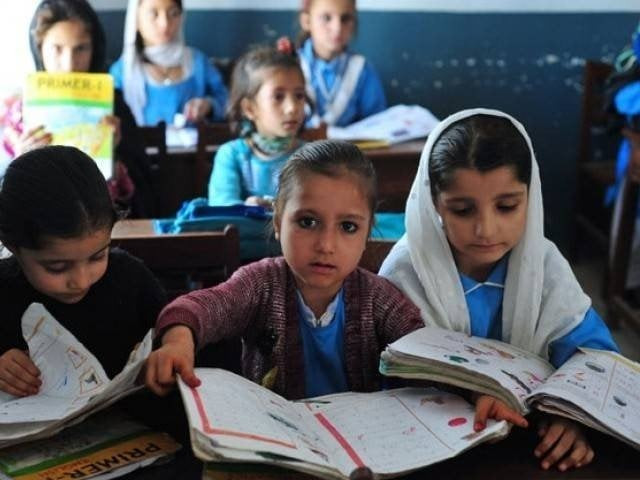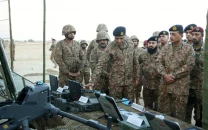New education policy unlikely to win green light
Education Minister Baligh-ur-Rehman ‘hopes’ it will be done by end of tenure

26 per cent schools are without electricity, as well as, eight per cent schools having no access to sanitation.PHOTO: REUTERS
The Ministry of Federal Education and Professional Training was all set to announce formal launch of the country’s education policy after 2009 but first the bureaucratic hurdles and now other formalities have come in the way.
When The Express Tribune asked about the policy, Minister of State for Education Baligh-ur-Rehman was unsure about the launch date. “I am optimistic that we will do it by the end of our tenure,” he said.
He added that there were several issues involved in the matter and “let’s hope for the best.”
Education policy may be launched by end of April
Rehman said after the completion of the policy drafting, it will be shared with the federal cabinet for discussion and approval.
As per the schedule the cabinet meeting is held on every Tuesday and there are only three weeks left for this government and same is the number of the remaining cabinet meetings. When asked whether or not the policy will be presented before the cabinet in the upcoming meeting he replied with a “no”.
Another obstacle that can make it impossible for the newly drafted policy to sail through in this short time is placing it before the Council of Common Interests (CCI)—a shared forum among provinces for common issues. The minister also confirmed that it would be shared with CCI as well.
In 2014, a 26-member advisory council, comprising senior educationists and policymakers, was established to revamp and implement the existing policy from 2009. A rough draft of the policy was finalised in October 2016 but after receiving feedback from related bureaucrats and provinces, it remained just a draft.
One of the senior members of the council talked on the condition of anonymity and expressed disappointment over “all the hard work going down the drain.”
“We were sitting the other day with other members of the committee and were totally dejected over the situation that has emerged after such hard work,” he said adding they never expected it would all boil down to such sad state of affairs.
According to another member of the committee, Punjab has turned out to be a hard nut to crack refusing to cooperate with the federal education ministry about education policy.
Punjab has been to date refusing to give its comment about the policy while the rest of provinces have submitted their replies. The province is of the view that after the 18th Amendment federal government has no right to involve in any such subject that has been devolved.
The new education policy has 19 chapters that specifically focuses on early childhood education, primary, secondary and higher secondary level.
According to a member of the advisory council, each and every chapter mentions the purpose and objective of the policy. “It has details about sustainable development goals with regard to international and national obligations”.
Meanwhile, currently only the unreleased 2009 policy is informally being followed across the country and right after the 18th Amendment even that was ignored.



















COMMENTS
Comments are moderated and generally will be posted if they are on-topic and not abusive.
For more information, please see our Comments FAQ